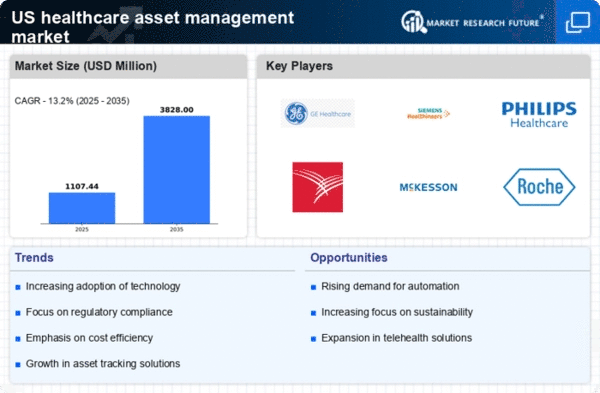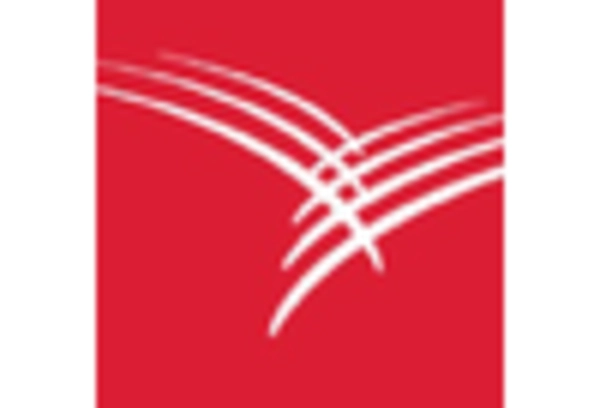Increased Focus on Patient Safety
Patient safety remains a paramount concern within the healthcare asset-management market. The need to ensure that medical equipment is functioning correctly and is readily available is critical for patient outcomes. As a result, healthcare organizations are investing in asset management systems that provide comprehensive tracking and maintenance schedules. This focus on safety is reflected in the growing market for asset management solutions, which is projected to reach $5 billion by 2026. By prioritizing patient safety, healthcare providers are likely to enhance their asset management practices, thereby improving overall care quality.
Growing Importance of Data Analytics
Data analytics is becoming increasingly vital in the healthcare asset-management market. The ability to analyze asset utilization data allows healthcare providers to make informed decisions regarding equipment procurement and maintenance. By leveraging data analytics, organizations can identify trends and optimize their asset management strategies. This trend is supported by the fact that healthcare facilities utilizing data-driven approaches can improve asset utilization rates by up to 25%. As the demand for data analytics continues to rise, it is expected to play a crucial role in shaping the future of the healthcare asset-management market.
Rising Demand for Operational Efficiency
In the healthcare asset-management market, there is an increasing demand for operational efficiency. Healthcare providers are under pressure to optimize resource utilization while maintaining high standards of patient care. This has led to the adoption of asset management solutions that facilitate better inventory control and reduce downtime. Reports suggest that organizations implementing effective asset management strategies can achieve operational cost reductions of approximately 20%. As healthcare facilities strive to enhance their service delivery, the focus on operational efficiency is likely to drive growth in the asset-management market.
Technological Advancements in Asset Tracking
The healthcare asset-management market is experiencing a notable shift due to advancements in asset tracking technologies. Innovations such as RFID and GPS tracking systems enhance the visibility and management of medical equipment. These technologies enable healthcare facilities to monitor asset utilization in real-time, reducing losses and improving operational efficiency. According to recent data, hospitals that implement advanced tracking solutions can reduce equipment loss by up to 30%. This trend indicates a growing reliance on technology to streamline asset management processes, ultimately leading to cost savings and improved patient care.
Regulatory Pressures and Compliance Requirements
The healthcare asset-management market is significantly influenced by regulatory pressures and compliance requirements. Healthcare organizations must adhere to stringent regulations regarding equipment maintenance and tracking. Non-compliance can result in substantial fines and legal repercussions. As a response, many facilities are investing in asset management systems that ensure compliance with federal and state regulations. This trend is expected to drive market growth, as organizations seek to mitigate risks associated with non-compliance. The emphasis on regulatory adherence is likely to shape the future landscape of the healthcare asset-management market.
















